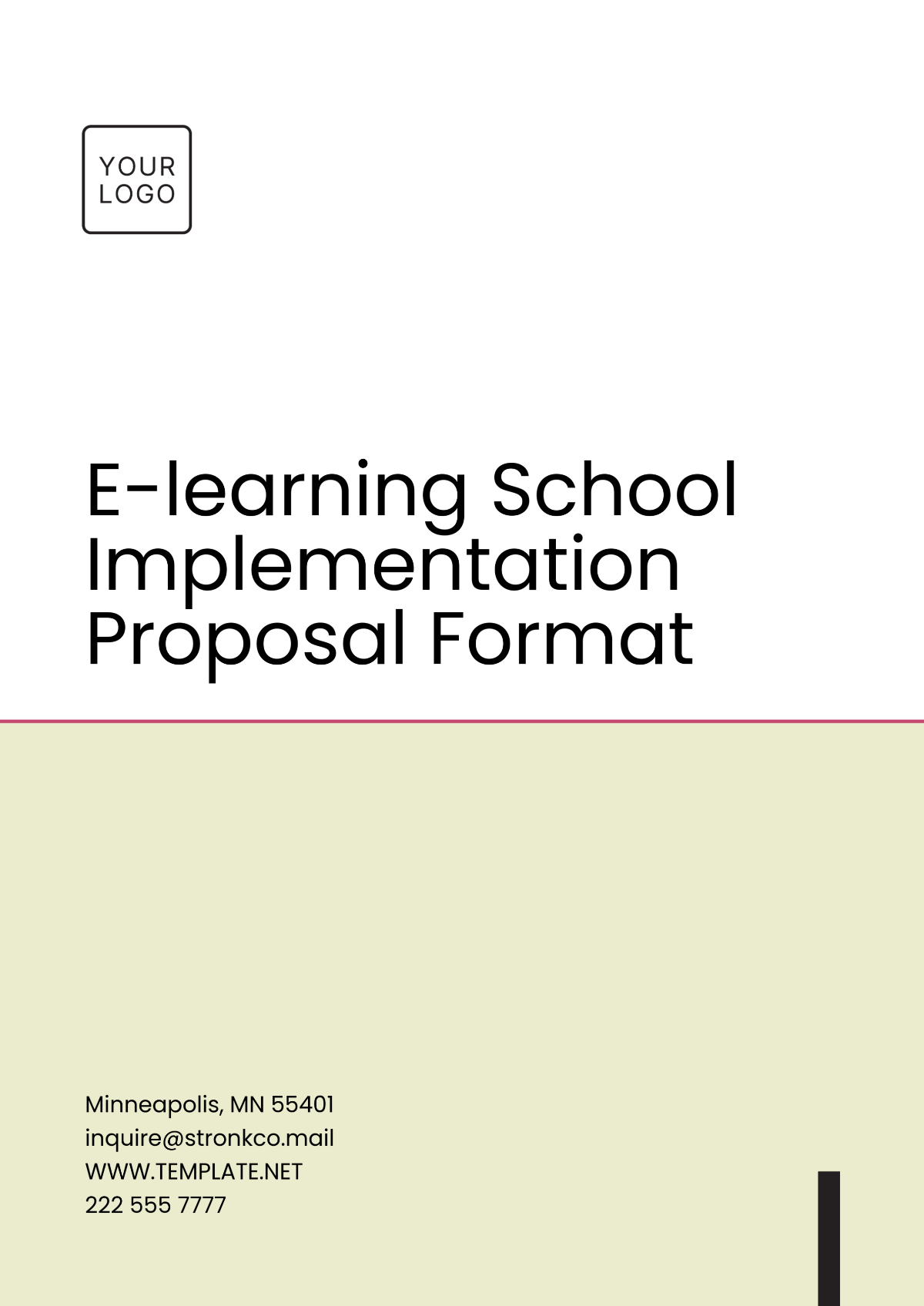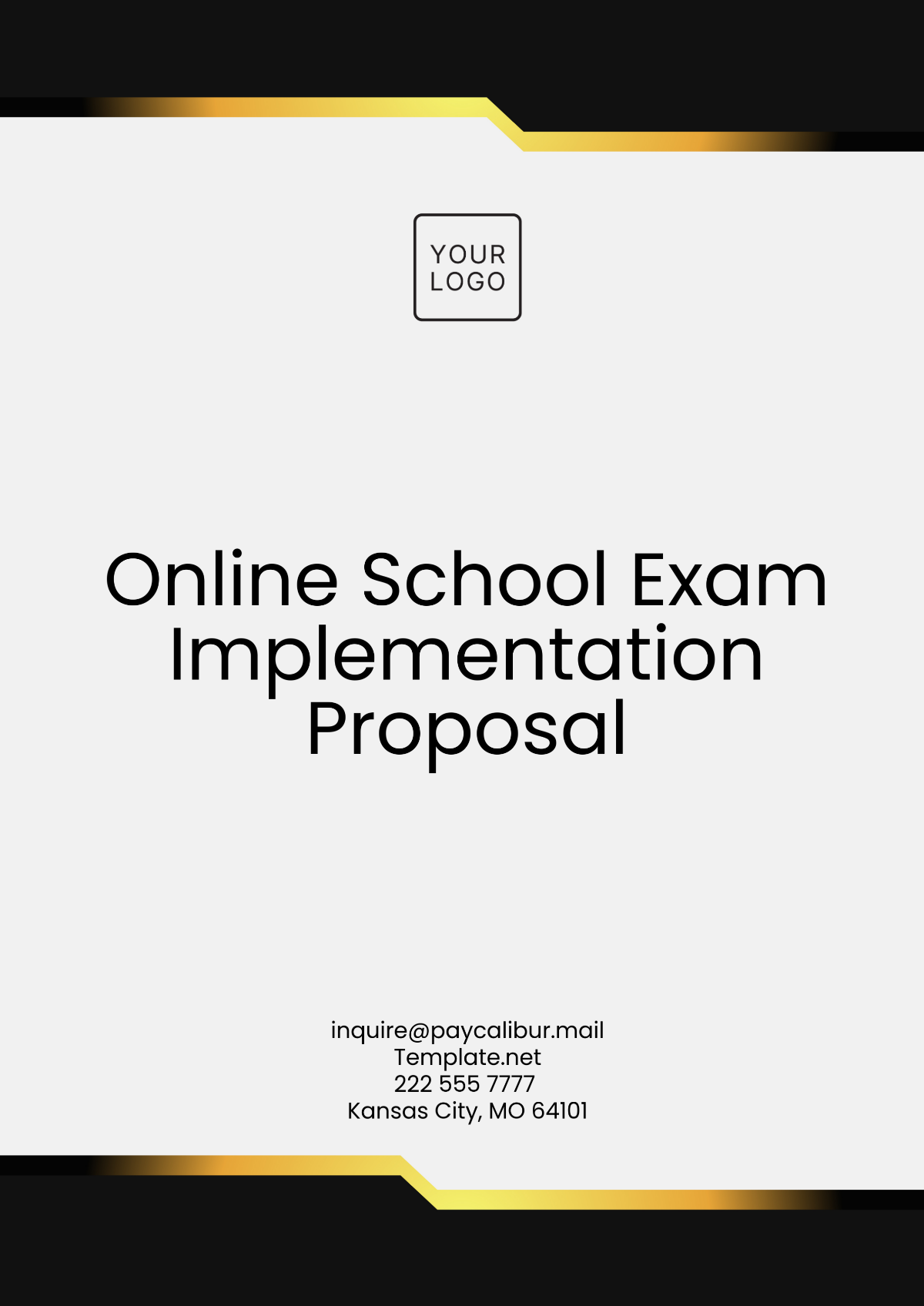Online School Exam Implementation Proposal
Date: January 6, 2050
Prepared by: [Your Name]
Position: Project Manager
Company/Organization: [Your Company Name]
Contact Information: [Your Email]
1. Introduction
The purpose of this proposal is to outline the implementation of an Online School Exam System that will enable educational institutions to conduct exams remotely, securely, and efficiently. The proposed system aims to provide students with a seamless examination experience, while also streamlining the exam management process for instructors and administrators.
2. Objectives
The key objectives of the Online School Exam Implementation are:
Accessibility: Make exams easily accessible to students globally, ensuring remote learners are able to participate.
Security: Implement robust security measures to prevent cheating, unauthorized access, and ensure data integrity.
Scalability: Support large numbers of students across multiple locations, ensuring the system remains operational at scale.
Efficiency: Simplify the exam creation, distribution, and grading processes for instructors.
Data Analytics: Offer valuable insights into student performance to help identify trends and areas for improvement.
3. System Features
3.1. User Interface
Student Portal: A streamlined dashboard for students to access exams, track their progress, and view results. The interface is mobile-responsive, allowing students to take exams on different devices.
Instructor Portal: A user-friendly interface where instructors can easily create, schedule, and grade exams. The system will also allow instructors to generate exam reports.
Admin Portal: Provides administrators with full control over the system, including user management, exam scheduling, and detailed analytics.
3.2. Exam Creation & Management
Question Bank Integration: Instructors can select questions from a pre-built question bank or create new questions. The system will support a variety of question types, including multiple-choice, essay, and matching questions.
Automated Grading: The system will automatically grade multiple-choice and true/false questions, while instructors can manually grade subjective questions.
Timer Functionality: Exams will have a time limit, with real-time countdowns displayed for students. The system will lock exams once the time limit is reached.
3.3. Security Features
Authentication: Multi-factor authentication will be used to verify both student and instructor identities.
Browser Lockdown: The system will prevent students from navigating away from the exam page, ensuring that they are unable to access unauthorized resources during the exam.
Proctoring: The system will incorporate AI-powered proctoring or live proctoring to monitor students' behavior and prevent cheating.
IP Restrictions: Exams will be restricted to specific IP ranges or devices, reducing the risk of unauthorized access.
3.4. Results & Analytics
Instant Grading: Multiple-choice and true/false questions will be automatically graded, with immediate feedback provided to students.
Detailed Feedback: Instructors will be able to provide personalized feedback for each student, helping them understand their strengths and weaknesses.
Performance Analytics: The system will provide detailed performance analytics, including class-wide trends, average scores, and individual student performance data.
4. Timeline
Phase | Duration | Details |
|---|---|---|
Phase 1: Planning | 2 weeks | Define requirements, select technology stack, and outline project goals. |
Phase 2: Development | 4 weeks | Build the system infrastructure, design user interfaces, and integrate features. |
Phase 3: Testing | 2 weeks | Conduct user testing, address bugs, and ensure security features work. |
Phase 4: Deployment | 1 week | Launch the platform for a pilot group of users, and gather feedback. |
Phase 5: Full Launch | 2 weeks | Full deployment and roll-out to all students and instructors. |
5. Budget Estimate
Item | Estimated Cost |
|---|---|
Platform Development & Setup | $250,000 |
Security Features (Encryption, Proctoring Tools) | $75,000 |
Testing & Quality Assurance | $50,000 |
Licensing (Software, Tools) | $30,000 |
Training & Documentation | $20,000 |
Maintenance & Support (1 year) | $40,000 |
Total Estimated Cost | $465,000 |
6. Risk Management
Technical Difficulties: Contingency plans will be in place, including cloud-based backups and a dedicated support team to handle potential technical issues.
Cheating & Integrity Concerns: Anti-cheating measures, including proctoring and browser lockdowns, will be enforced. Instructors can review flagged behavior in real-time or after the exam.
User Adoption: To ensure a smooth transition, training sessions for both students and instructors will be conducted, and user support will be available throughout the exam periods.
7. Conclusion
The Online School Exam System presents an innovative solution that will significantly improve the exam process for both students and instructors. With its emphasis on security, accessibility, and ease of use, the system is designed to meet the demands of modern educational institutions. The proposed system will also enhance the overall learning experience by providing valuable insights into student performance.









































